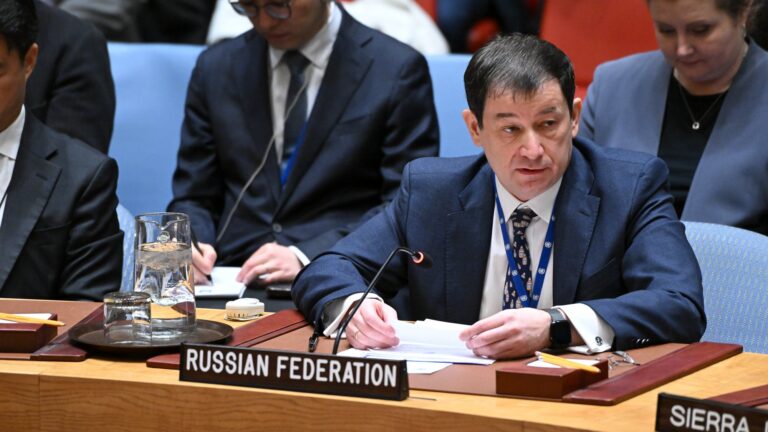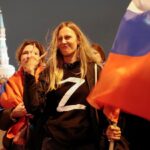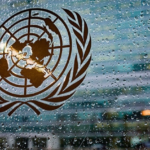Russia vetoed a United Nation resolution on Sudan calling for an immediate cease-fire between Sudan’s warring parties and the delivery of humanitarian aid to millions of Sudanese. Russia was the only Security Council member that voted against the cease-fire resolution.
China, Russia’s ally, supported the resolution, drafted by the United Kingdom and Sierra Leone.
Russian Deputy U.N. Ambassador Dmitry Polyanskiy told the council that Moscow vetoed the resolution because Sudan’s government should be “solely” responsible for what happens in Sudan.
U.S. Ambassador Linda Thomas-Greenfield said, “It is shocking that Russia has vetoed an effort to save lives, though perhaps it shouldn’t be.”
She added, “For months, Russia has obstructed and obfuscated, standing in the way of council action to address the catastrophic situation in Sudan and playing … both sides of the conflict, to advance its own political objectives at the expense of Sudanese lives.”
British Foreign Minister David Lammy said, “One country stood in the way of the council speaking with one voice. One country is the blocker. One country is the enemy of peace. This Russian veto is a disgrace, and it shows to the world yet again, Russia’s true colors.”
War broke out between Sudan’s military and the paramilitary Rapid Support Forces in April 2023, in the capital, Khartoum, just before the country was set to transition to civilian rule. The violence has spread to other regions around the country.
Russia’s veto of the UN Security Council (UNSC) resolution on Sudan has significant negative implications for both the ongoing crisis and global efforts to address it:
1. Obstruction of Humanitarian Relief
- The resolution sought to enhance humanitarian access and enforce a ceasefire amid one of the world’s most severe humanitarian crises, with over 8 million displaced and millions more facing famine.
- Russia’s veto delays coordinated international action, hindering relief efforts and leaving vulnerable populations without the aid they desperately need.
2. Empowerment of Warring Factions
- The veto effectively bolsters the power of the Sudanese Armed Forces (SAF) and the Rapid Support Forces (RSF), who have been accused of atrocities and disregard for civilian safety. This prolongs the conflict, exacerbating human suffering.
3. Destabilization of the Region
- By blocking measures to stabilize Sudan, the veto risks further destabilizing neighboring countries, such as Chad and South Sudan, which are already under strain from the influx of refugees and spillover violence. This amplifies regional insecurity and increases the potential for extremist group activities.
4. Global Migration Crisis
- The veto undermines attempts to manage the migration flows caused by the conflict. As Sudanese refugees flee to Europe and beyond, the veto stalls international mechanisms that could address root causes and coordinate responses to migration pressures.
5. Geopolitical Implications
- Critics argue the veto reflects Russia’s broader geopolitical strategy, prioritizing its interests in Sudan (such as gold mining and military agreements) over humanitarian and global stability concerns. This not only undermines Sudanese sovereignty but also erodes the credibility of the UNSC as a platform for conflict resolution.
In summary, Russia’s veto obstructs urgent international efforts to address Sudan’s conflict and humanitarian crisis, while reinforcing dynamics that prolong suffering, destabilize the region, and intensify global migration challenges.
Eleven million people in Sudan have been displaced and half of the country’s population, an estimated 25 million people, are struggling with crisis-level food insecurity, according to the United Nations. Famine was confirmed in August in the northern part of Sudan’s Darfur region.
Russia’s stance aligns with broader attempts to counter Western influence in Africa. Meanwhile, Sudan’s government praised the veto, viewing it as a defense of its sovereignty and a rejection of perceived external interference.
The Wagner Group, a Russian paramilitary organization, has historically supported the Rapid Support Forces (RSF) in return for access to gold mining rights. This gold has been a significant revenue source for Russia, especially since its invasion of Ukraine.
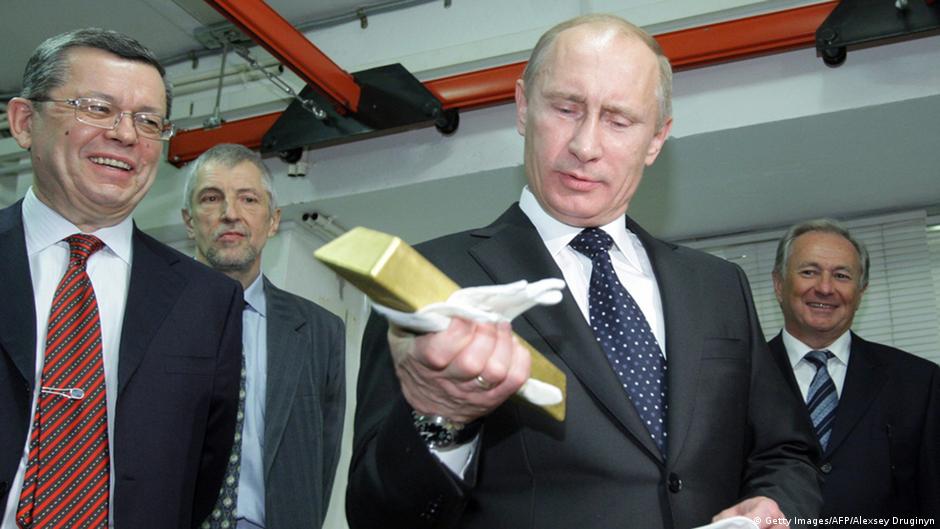
More on this story: Africa loses gold deposit sovereignty and turns into Russian colony
Russia’s involvement in Sudan has contributed to the migration crisis primarily through its role in exacerbating the country’s ongoing conflict. By supporting various factions in the civil war between the Sudanese Armed Forces (SAF) and the paramilitary Rapid Support Forces (RSF), Russia has added to the instability driving mass displacement.
Key aspects of this involvement include:
- Military Support: Russia, via its Wagner Group and official channels, has supplied weapons and fuel to the warring factions, particularly the SAF and RSF. This support has prolonged and intensified the conflict, forcing millions of Sudanese to flee their homes
.
- Economic Interests: Russia has heavily invested in Sudan’s gold mining sector. Wagner’s collaboration with the RSF and other entities to exploit gold resources has not only financed military operations but also destabilized local communities reliant on these resources. This economic extraction fuels grievances and conflict that exacerbate displacement
.
- Proxy War Dynamics: Russia’s actions in Sudan are part of a broader strategy to expand its influence in Africa, often at the expense of local stability. By supporting conflict-prone regimes and factions, Moscow has indirectly fueled migration crises that spread to neighboring countries and beyond.
The humanitarian fallout is severe. Over 8 million people have been displaced by this and previous conflicts in Sudan, making it one of the world’s worst migration and displacement crises. The instability also risks spilling over into fragile neighboring states, further amplifying regional and international migration challenges
- Naval Presence on the Red Sea: Russia has long sought to establish a naval base in Port Sudan. This would not only enhance its strategic position in the Red Sea and Indian Ocean but also support broader ambitions to project military power in the region. Recent agreements indicate that Sudan is moving closer to allowing Russia to build a logistical support center on its coast in exchange for military aid.
- Military and Economic Cooperation: Russia has proposed various forms of military support to Sudan’s Sovereign Council, including advanced weaponry and fuel supplies. This relationship is part of Moscow’s larger strategy to bolster its influence in Africa, particularly as Western countries’ involvement in the region declines
.
- Geopolitical Influence in Africa: Sudan plays a role in Russia’s broader strategy of cultivating partnerships across Africa. By supporting Sudan militarily and economically, Russia strengthens its foothold on the continent and counters Western influence in the region.
Overall, Sudan is a key piece in Russia’s efforts to expand its global influence and secure economic benefits while navigating international sanctions.
The U.S. Treasury Department had announced sanctions against the Rapid Support Forces’ West Darfur Commander, Abdel Rahman Joma’a Barakallah. This comes days after the United Nations Security Council imposed its sanctions against both Barakallah and Osman Mohamed Hamid Mohamed for their “roles in leading the RSF as it carried out ethnic cleansing and committed human rights violations”.In the statement, the U.S. State Department said the move is part of efforts to “support the Sudanese people and use the tools at our disposal to impose costs on those committing atrocities,” while also commending the United Nations for its “readiness to hold to account those responsible for abuses against civilians in Darfur”.
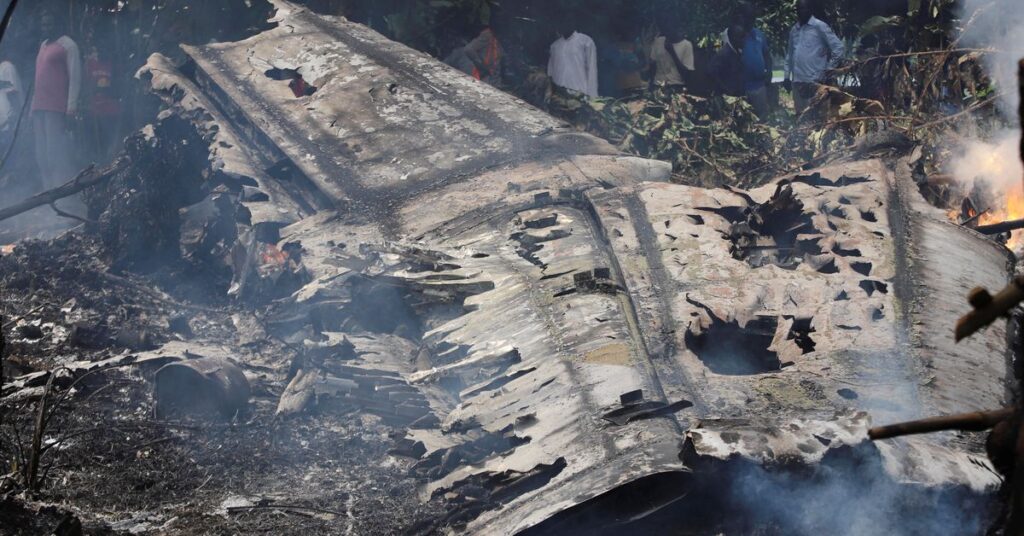
More on this story: Russia May Be Involved in Violating Arms Embargo in Darfur


